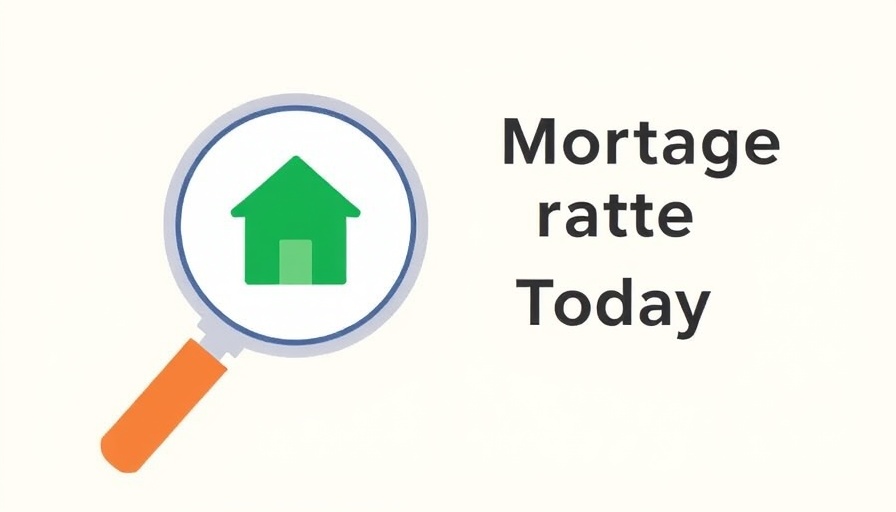
The Fed Rate Cut: A New Era for Student Loans?
On September 17, 2025, the Federal Reserve made headlines by cutting the key interest rate by a quarter of a percentage point, a move that could have rippling effects across various financial sectors, particularly in student loans. This rate reduction raises the stakes for both new borrowers and those considering refinancing their existing loans. However, as small business owners and managers weigh their options, it’s crucial to consider how this shift could impact their financial management strategies.
Understanding the Fed Rate Cut's Impact
The immediate consequence of the rate cut is a potential decrease in interest rates on private student loans. For business owners, this could translate into more favorable borrowing terms if they decide to take loans for their education or that of their employees. Lower interest rates could encourage more refinancing, making it a viable option for many seeking to reduce their financial burdens. Nevertheless, it’s essential to remember that while federal student loans won't see immediate changes in interest rates, they provide crucial safety nets that private loans often lack.
Why Federal Student Loans Remain a Strong Option
Federal student loans are not just about interest rates; they come with flexible repayment options that are beneficial to borrowers. Income-driven repayment plans, which adjust based on the borrower's income, are essential tools for anyone facing financial uncertainty. Moreover, programs like Public Service Loan Forgiveness (PSLF) are available exclusively through federal loans, providing significant long-term financial relief tailored for those in public service roles or non-profits. This sets a clear distinction that while private loans may be cheaper in interest, they often do not offer the same level of support.
Refinancing: Weighing the Pros and Cons
The option to refinance private student loans could be appealing in light of the lowered rates. However, it’s essential for borrowers to evaluate whether refinancing is a beneficial move. When refinancing, borrowers may lose access to federal protections, including flexibility in repayment and the safety net of deferment options during tough economic times. Many financial advisors recommend conducting a thorough assessment of current financial obligations and future projections before making such a pivotal decision.
Potential Risks Associated with Private Loans
With lower interest rates prompting a potential influx into private loans, borrowers should be cautious. Private student loans often come with rigid terms that can lead to problematic situations for borrowers unable to meet their payments. While short-term savings may seem attractive, the long-term consequences can outweigh immediate benefits, especially in uncertain economic climates where income may fluctuate.
Looking Ahead: Predictions for Student Loan Borrowing
As the educational and business landscapes evolve, the implications of the Fed's interest rate cut may extend beyond current borrowers. If students are encouraged to borrow more due to lower costs and businesses recognize the value of investing in education, we may see a growing trend of increased student loan debt. However, it is vital for borrowers to maintain a balanced approach, focusing on sustainability rather than merely pursuing the lowest interest rate.
Strategies for Small Business Owners and Managers
For small business owners, managing student loans effectively can foster broader financial stability. Here are several strategies to consider:
- Educate your employees: Offering workshops on student loan management can help your team make informed decisions.
- Explore repayment assistance programs: Small businesses can attract talent by offering employee benefits that include student loan repayment assistance.
- Network with financial advisors: Collaborating with financial experts can provide insights tailored to your specific business needs.
Concluding Thoughts: Making Informed Decisions
The Federal Reserve's recent rate cut marks a significant moment not just for consumer borrowing but also for small business financial strategies. By staying informed and understanding the nuances of federal versus private loans, small business professionals can make educated decisions that impact both personal finance and employee management strategies. The landscape is shifting, and adapting to these changes can lead to financial empowerment.
As you navigate these evolving dynamics, consider reaching out to financial advisors like us, who can provide tailored assistance based on your unique circumstances. Taking proactive steps now can pave the way for a more financially secure future.
 Add Row
Add Row  Add
Add 




Write A Comment